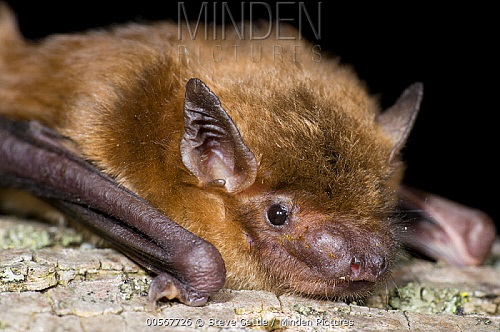BROWN BAT WARWICK – PRECAUTIONS

PROVIDENCE – The Rhode Island Department of Environmental Management (DEM) and the Rhode Island Department of Health (RIDOH) are alerting the public that a brown bat found on the beach at Goddard Memorial State Park in Warwick last week has tested positive for rabies. Because rabies is a fatal disease, anyone who may have had contact with this animal is urged to contact RIDOH as soon as possible.
The bat was discovered by a Massachusetts veterinarian who was walking on the beach at Goddard Park on June 10th. The veterinarian brought the bat to a DEM employee and requested it to be tested. That day the bat was submitted by a DEM Environmental Police Officer to RIDOH’s State Health Laboratories for rabies testing. The positive rabies test was confirmed on June 11th. There was no known exposure to the bat.
Out of an abundance of caution, anyone who may have had direct contact with a bat on the beach at Goddard Park, or anyone who was walking a pet and the pet had contact, should call RIDOH’s Center for Acute Infectious Disease Epidemiology at 401-222-2577 (Monday-Friday 8:30 a.m.-4:30 p.m.) or 401-276-8046 after hours for treatment guidance.
The rabies virus infects the central nervous system. If a person does not receive the appropriate medical care after a potential rabies exposure, the virus can cause disease in the brain, ultimately resulting in death. Rabies treatment must be started as soon as possible after exposure.
All dogs, cats and ferrets are required by state law to have current vaccination against rabies. Vaccination of pets prevents them from contracting rabies and prevents people from becoming exposed to rabies through their pets.
RIDOH and DEM make the following recommendations to prevent rabies:
– Make sure all dogs, cats, and ferrets are up to date on rabies vaccination.
– Avoid all contact with and do not feed stray or free-roaming domestic animals.
– Avoid all contact with and do not feed wild animals.
– Do not feed your animals outdoors, as this will attract other animals.
This is especially dangerous when feeding large numbers of free-roaming cats.
– Protect your pets by always maintaining control; walk dogs on a leash or let them play in a fenced yard, and do not let pets wander unsupervised.
– Report all animal bites to your city/town’s animal control officer.
– Securely cover all garbage cans so wild animals cannot scavenge for food.
For more information, visit www.health.ri.gov/diseases/rabies
For more information on DEM programs and services, visit www.dem.ri.gov. Follow DEM on Twitter (@RhodeIslandDEM) or Facebook at www.facebook.com/RhodeIslandDEM for more information on boating in Rhode Island as well as other timely updates.
